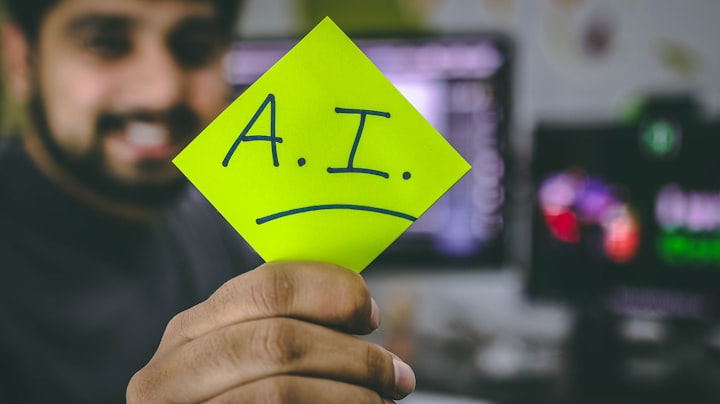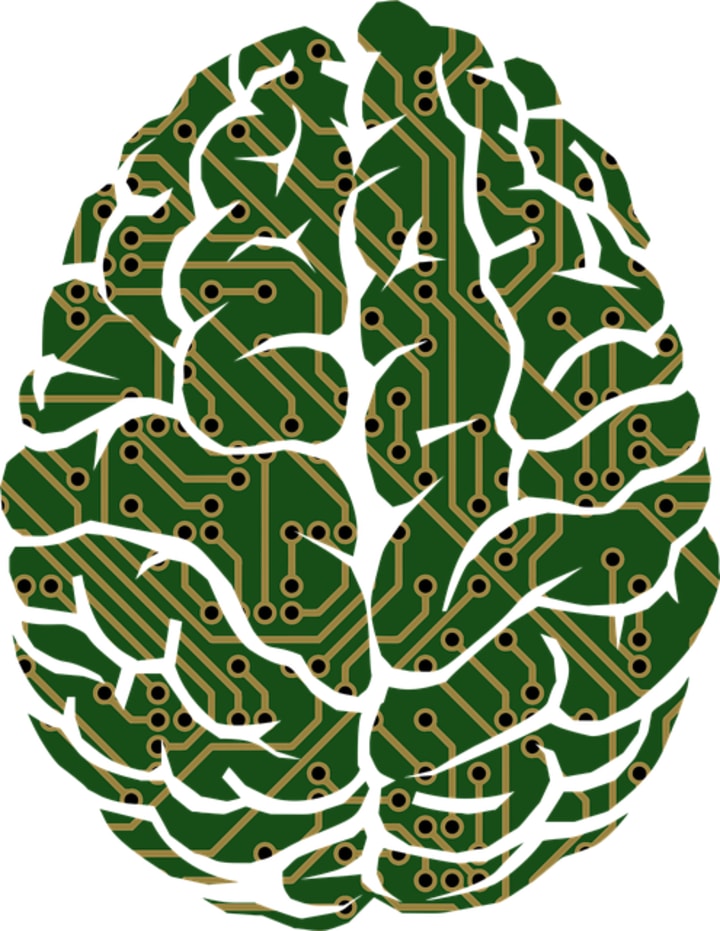AI Technology
Revolutionizing the Future

Introduction
In today's rapidly advancing world, AI technology has emerged as a groundbreaking force that is transforming industries and reshaping our future. From self-driving cars to virtual assistants, AI technology is revolutionizing the way we live and work. In this comprehensive article, we will explore the various facets of AI technology, its applications, and its impact on society.
AI Technology: Unleashing Innovation
Artificial Intelligence (AI) is a branch of computer science that aims to develop machines capable of performing tasks that typically require human intelligence. AI technology encompasses a range of capabilities, including natural language processing, machine learning, computer vision, and robotics. By leveraging these advanced techniques, AI technology has the potential to solve complex problems, automate processes, and augment human capabilities.
AI Technology in Healthcare

The healthcare industry has embraced AI technology to enhance patient care and improve outcomes. With the ability to analyze vast amounts of medical data, AI-powered systems can assist doctors in diagnosing diseases, predicting treatment responses, and identifying potential drug interactions. Moreover, AI technology can automate administrative tasks, freeing up healthcare professionals to focus on providing personalized care to patients.
AI Technology in Finance

AI technology is revolutionizing the financial sector by enabling advanced data analysis, risk assessment, and fraud detection. Machine learning algorithms can analyze historical market data to predict trends and make informed investment decisions. Additionally, AI-powered chatbots are transforming customer service by providing personalized assistance and resolving queries in real-time.
AI Technology in Manufacturing

The manufacturing industry is witnessing a significant transformation with the integration of AI technology. AI-powered robots and automation systems are streamlining production processes, increasing efficiency, and reducing costs. These robots can perform intricate tasks with precision, leading to improved product quality and faster production cycles.
The Benefits of AI Technology
AI technology offers a multitude of benefits across various domains. Let's delve into some of the key advantages it brings to the table.
1. Enhanced Efficiency: AI-powered systems can analyze vast amounts of data at unprecedented speeds, enabling businesses to make faster and more informed decisions.
2. Improved Accuracy: By leveraging machine learning algorithms, AI technology can minimize errors and enhance accuracy in tasks such as data analysis, pattern recognition, and prediction.
3. Personalization: AI-powered systems have the ability to understand individual preferences and deliver personalized experiences, whether it's recommending products or tailoring content.
4. Cost Savings: AI technology can automate repetitive tasks, reducing the need for manual labor and cutting operational costs for businesses.
5. Safety and Security: AI-powered systems can identify potential risks, detect anomalies, and enhance security measures across various industries, including cybersecurity and public safety.
AI Technology: Addressing Concerns
While the potential of AI technology is immense, it also raises concerns that need to be addressed. Here are some common concerns and how they can be mitigated.
Job Displacement
One concern surrounding AI technology is the potential loss of jobs due to automation. However, history has shown that technological advancements often create new opportunities and jobs in different sectors. As AI technology evolves, it will require human expertise for maintenance, supervision, and creative problem-solving.
Ethical Considerations
AI technology raises ethical questions, particularly in areas such as privacy, bias, and transparency. To mitigate these concerns, there is a need for robust regulations and ethical frameworks to govern the development and deployment of AI systems. Transparency in algorithms and ensuring unbiased data inputs are crucial steps towards building trust in AI technology.
Human-AI Collaboration

Rather than viewing AI technology as a replacement for human intelligence, it
should be seen as a tool that enhances human capabilities. The focus should be on developing AI systems that collaborate effectively with humans, augmenting their decision-making processes and enabling them to focus on tasks that require creativity, empathy, and critical thinking.
FAQs about AI Technology
1. What is AI technology?
AI technology refers to the use of advanced computer systems that can perform tasks that typically require human intelligence, such as natural language processing, machine learning, and computer vision.
2. How is AI technology used in healthcare?
In healthcare, AI technology is used for diagnosing diseases, predicting treatment responses, analyzing medical data, and automating administrative tasks to improve patient care and enhance operational efficiency.
3. Can AI technology replace human jobs?
While AI technology may automate certain tasks, it also creates new opportunities and jobs. The focus should be on human-AI collaboration, where AI technology enhances human capabilities rather than replacing them.
4. What are the benefits of AI technology?
AI technology offers enhanced efficiency, improved accuracy, personalization, cost savings, and enhanced safety and security across various industries.
5. Are there any ethical concerns regarding AI technology?
Yes, ethical concerns include privacy, bias, and transparency. To address these concerns, regulations and ethical frameworks are necessary to govern the development and deployment of AI systems.
6. How can AI technology be used in manufacturing?
In manufacturing, AI technology is used to automate production processes, improve product quality, and increase efficiency. AI-powered robots and automation systems perform intricate tasks with precision, leading to streamlined operations.
Conclusion
AI technology is undoubtedly reshaping our world and revolutionizing various industries. Its potential for innovation, efficiency, and problem-solving is unparalleled. However, it is essential to address concerns regarding job displacement, ethical considerations, and human-AI collaboration to ensure a balanced and beneficial integration of AI technology. By leveraging its capabilities responsibly, we can harness the power of AI to create a brighter and more prosperous future.
About the Creator
Mohammad Imran
✍️ Imran 🌟 Passionate content creator
📺 Sharing captivating stories and insightful perspectives
📝 Words that inspire and entertain
💡Join me on this creative journey! 🌍✨






Comments
There are no comments for this story
Be the first to respond and start the conversation.